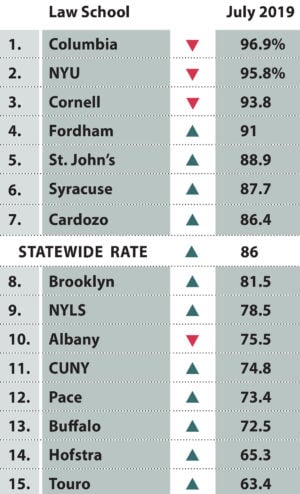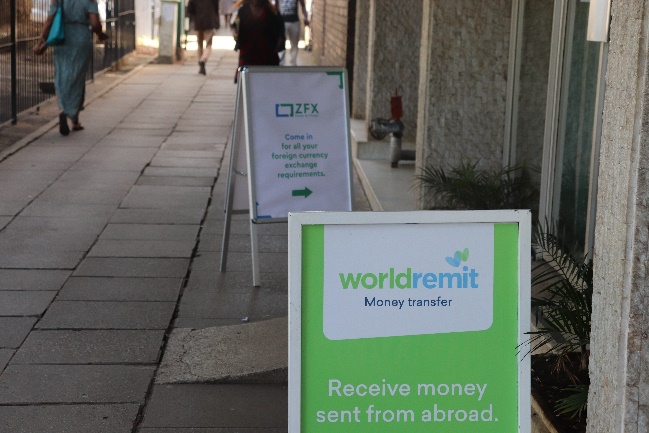(Image via Getty)
In late October, hot on the heels of the news that the national average score on the MBE section of the July 2019 administration of the bar exam had seen the largest increase since 2008, New York released its results amid much fanfare. Pass rates were up across the board.
Today, we’ve got a list of the pass rates for the July 2019 New York bar exam by law school. Which law schools saw their pass rates climb, and which ones took tumbles?
First, we’ll provide you with some background information. This summer, 85 percent of all first-time takers from ABA-accredited law schools in New York passed the test, an increase of 4 percentage points from July 2018. Eleven New York law schools saw their pass rates rise, and two of them soared with double-digit gains. Only four law schools saw their pass rates drop — and three of them are ranked in the T14.
*record scratch* *freeze frame*
Yup, we’re talking about Columbia, NYU, and Cornell. You’re probably wondering how such elite law schools ended up in this situation. As it turns out, it’s not that big of a deal, but it’s still worth mentioning when the high and mighty have fallen, even slightly. Columbia’s pass rate dropped from 98.3 percent to 96.9 percent; NYU’s pass rate dropped from 98.4 percent to 95.8 percent; and Cornell’s pass rate dropped from 94.1 percent to 93.8 percent. No doubt they’ll recover quickly from this travesty.
Check out this table to see the passage rates for all New York law schools:

Jack Newsham of the New York Law Journal has the details on the law schools whose pass rates skyrocketed this summer:
Touro Law’s first-time bar pass rate remained the lowest among all New York law schools, but it increased its rate by 14.8 percentage points, from 48.6% to 63.4%. That’s close to its 64.8% first-time pass rate on the summer 2017 bar exam and within spitting distance of Hofstra’s 65.3% pass rate.
“This year’s rate is a step forward,” said Touro Dean Elena B. Langan in a statement. “I expect we will maintain an upward trend as we continue to implement new initiatives and work closely with each of our students. Many of our recent efforts have yielded positive results and I am confident that we can continue to support students in ways that will be beneficial.”
New York Law School increased its first-time test taker pass rate more than any other school in the New York Law Journal’s sample, from 64.1% to 78.5%. Anthony Crowell, the dean and president of NYLS, attributed the increase to changes the school made to its course of study around the time that its class of 2019 began their legal educations.
Despite vast improvement, the gap between the state’s worst-performing law school (Touro) and its best-performing law school (Columbia) is now about 33.5 percentage points compared to last year’s nearly 50 percentage point gap. Students at the worst-performing schools still have much more work to do to catch up with their colleagues. We hope the situation will continue to improve next year.
What are your thoughts on the bar pass rates for New York’s law schools? Feel free to get in touch with us via email or text message (646-820-8477) to brag about your law school or alma mater, talk trash, or offer dispassionate analysis.
Amid Dips at the Top, Most New York Law Schools See Rise in Bar Pass Rates [New York Law Journal]
 Staci Zaretsky is a senior editor at Above the Law, where she’s worked since 2011. She’d love to hear from you, so please feel free to email her with any tips, questions, comments, or critiques. You can follow her on Twitter or connect with her on LinkedIn.
Staci Zaretsky is a senior editor at Above the Law, where she’s worked since 2011. She’d love to hear from you, so please feel free to email her with any tips, questions, comments, or critiques. You can follow her on Twitter or connect with her on LinkedIn.





 Jordan Rothman is a partner of
Jordan Rothman is a partner of 










